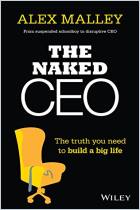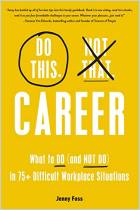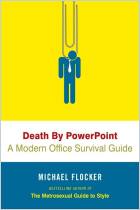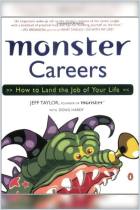
Book
They Don’t Teach Corporate in College
A Twenty-Something’s Guide to the Business World
Recommendation
Alexandra Levit shows people in their 20s how to thrive in the corporate world. She discusses how to get your first job, survive and thrive amid office politics, set goals, network, manage your time, advance your career and even become a boss. Levit offers excellent advice for those new to the work world. getAbstract recommends her comprehensive guidance and tactics to those who are trying to land their first professional position and to the HR professionals who hire them.
Summary
About the Author
Alexandra Levit, the author of six books, also has written for The Wall Street Journal and The New York Times.
Learners who read this summary also read
Book
Book
Book






















Comment on this summary